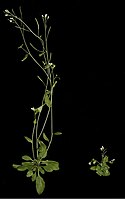
Herbivore-Induced (Z)-3-Hexen-1-ol is an Airborne Signal That Promotes Direct and Indirect Defenses in Tea (Camellia sinensis) under Light.
Sign Up to like & getrecommendations! Published in 2021 at "Journal of agricultural and food chemistry"
DOI: 10.1021/acs.jafc.1c04290
Abstract: Tea (Camellia sinensis) is the most popular nonalcoholic beverage worldwide. During cultivation, tea plants are susceptible to herbivores and pathogens, which can seriously affect tea yield and quality. A previous report showed that (Z)-3-hexenol is… read more here.
Keywords: herbivore induced; tea camellia; tea; tea plants ... See more keywords

Drought Impairs Herbivore-Induced Volatile Terpene Emissions by Ponderosa Pine But Not Through Constraints on Newly Assimilated Carbon.
Sign Up to like & getrecommendations! Published in 2023 at "Tree physiology"
DOI: 10.1093/treephys/tpad016
Abstract: Volatile terpenes serve multiple biological roles including tree resistance against herbivores. The increased frequency and severity of drought stress observed in forests across the globe may hinder trees from producing defense-related volatiles in response to… read more here.
Keywords: ponderosa pine; carbon; emissions ponderosa; herbivore induced ... See more keywords

Intraspecific variation in herbivore‐induced plant volatiles influences the spatial range of plant–parasitoid interactions
Sign Up to like & getrecommendations! Published in 2019 at "Oikos"
DOI: 10.1111/oik.05151
Abstract: Chemical information influences the behaviour of many animals, thus affecting species interactions. Many animals forage for resources that are heterogeneously distributed in space and time, and have evolved foraging behaviour that utilizes information related to… read more here.
Keywords: herbivore induced; variation; plant; field ... See more keywords

Light dominates the diurnal emissions of herbivore-induced volatiles in wild tobacco
Sign Up to like & getrecommendations! Published in 2021 at "BMC Plant Biology"
DOI: 10.1186/s12870-021-03179-z
Abstract: Background Timing is everything when it comes to the fitness outcome of a plant’s ecological interactions, and accurate timing is particularly relevant for interactions with herbivores or mutualists that are based on ephemeral emissions of… read more here.
Keywords: herbivore induced; dominates diurnal; wild tobacco; light dominates ... See more keywords

Silicon Supplementation Alters the Composition of Herbivore Induced Plant Volatiles and Enhances Attraction of Parasitoids to Infested Rice Plants
Sign Up to like & getrecommendations! Published in 2017 at "Frontiers in Plant Science"
DOI: 10.3389/fpls.2017.01265
Abstract: Silicon (Si) is important in plant defenses that operate in a direct manner against herbivores, and work in rice (Oryza sativa) has established that this is mediated by the jasmonate signaling pathway. Plant defenses also… read more here.
Keywords: herbivore induced; rice; plant; induced plant ... See more keywords

Exogenous Application of Methyl Jasmonate Increases Emissions of Volatile Organic Compounds in Pyrenean Oak Trees, Quercus pyrenaica
Sign Up to like & getrecommendations! Published in 2022 at "Biology"
DOI: 10.3390/biology11010084
Abstract: Simple Summary The tri-trophic interactions between plants, insects, and insect predators and parasitoids are a dominant component of many terrestrial ecosystems. Within these interactions, many predators of herbivorous arthropods use chemical signals provided by the… read more here.
Keywords: exogenous application; meja treated; application methyl; attraction ... See more keywords

A Highly Expressed Antennae Odorant-Binding Protein Involved in Recognition of Herbivore-Induced Plant Volatiles in Dastarcus helophoroides
Sign Up to like & getrecommendations! Published in 2023 at "International Journal of Molecular Sciences"
DOI: 10.3390/ijms24043464
Abstract: Natural enemies such as parasitoids and parasites depend on sensitive olfactory to search for their specific hosts. Herbivore-induced plant volatiles (HIPVs) are vital components in providing host information for many natural enemies of herbivores. However,… read more here.
Keywords: dastarcus helophoroides; involved recognition; induced plant; odorant binding ... See more keywords

Interactive Effects of an Herbivore-Induced Plant Volatile and Color on an Insect Community in Cranberry
Sign Up to like & getrecommendations! Published in 2020 at "Insects"
DOI: 10.3390/insects11080524
Abstract: Simple Summary Plants often increase their odor emissions after herbivore feeding damage, which in turn attract natural enemies of the herbivores such as insect predators. Synthetic versions of these so-called herbivore-induced plant volatiles (HIPVs) can… read more here.
Keywords: insects; color; predalure; herbivore induced ... See more keywords